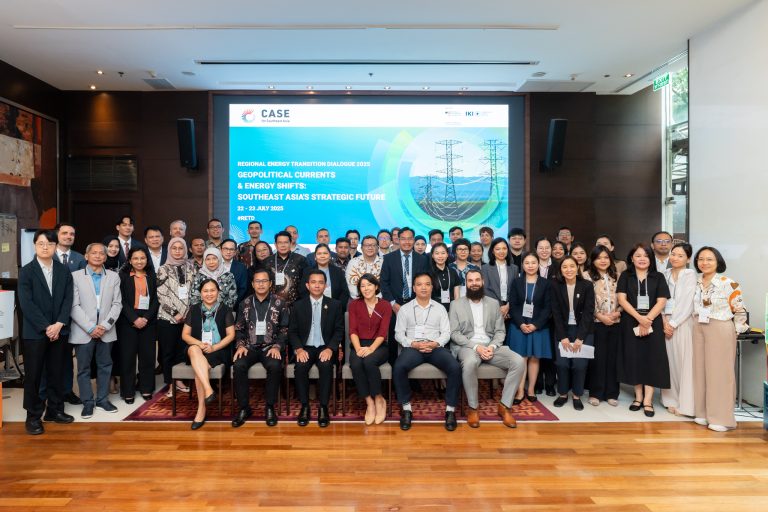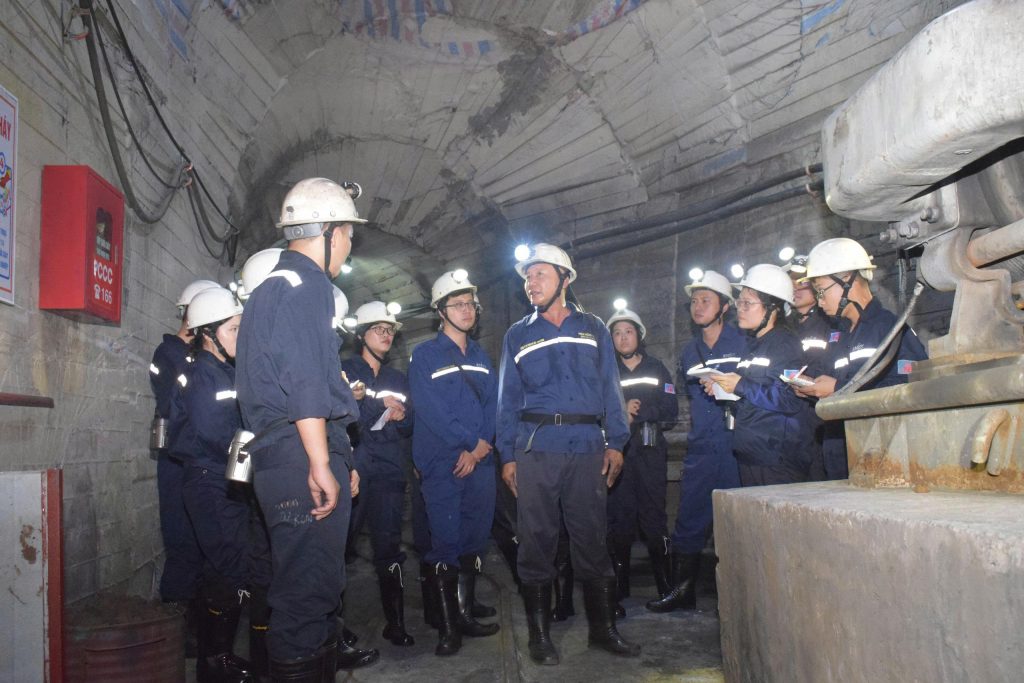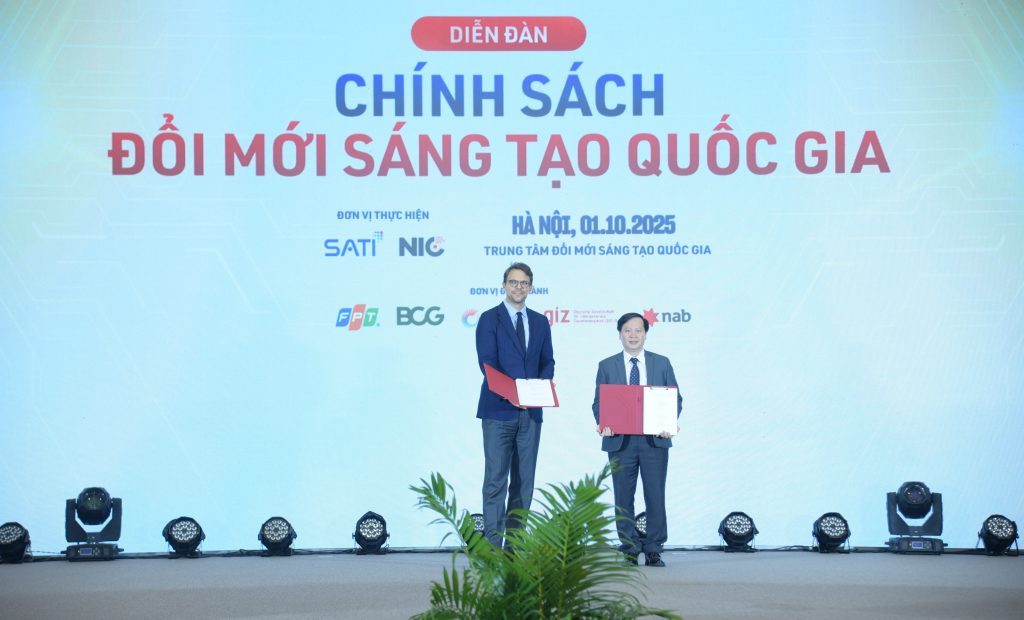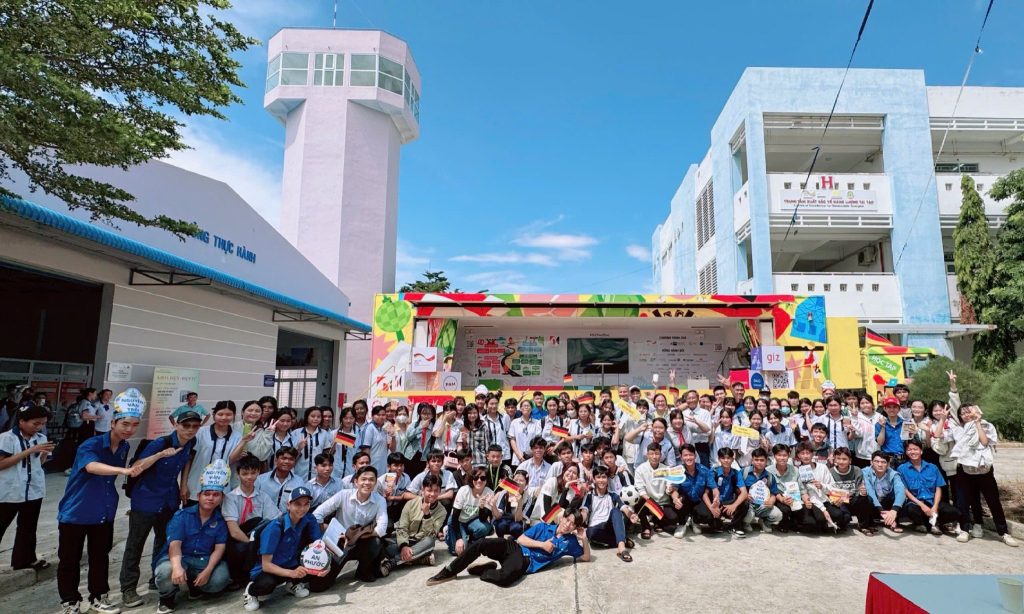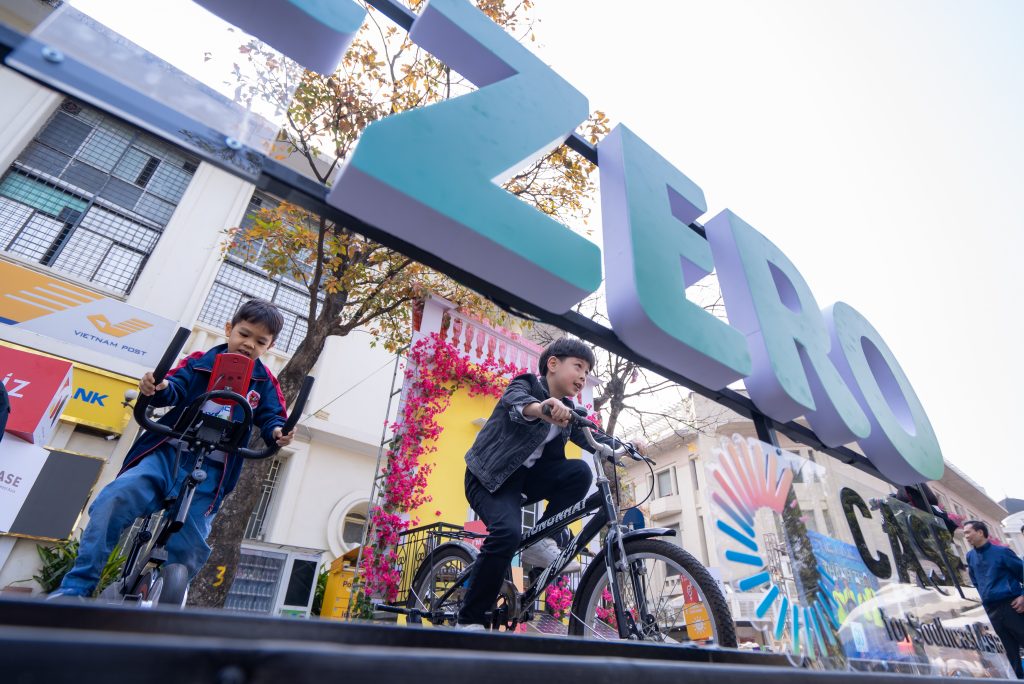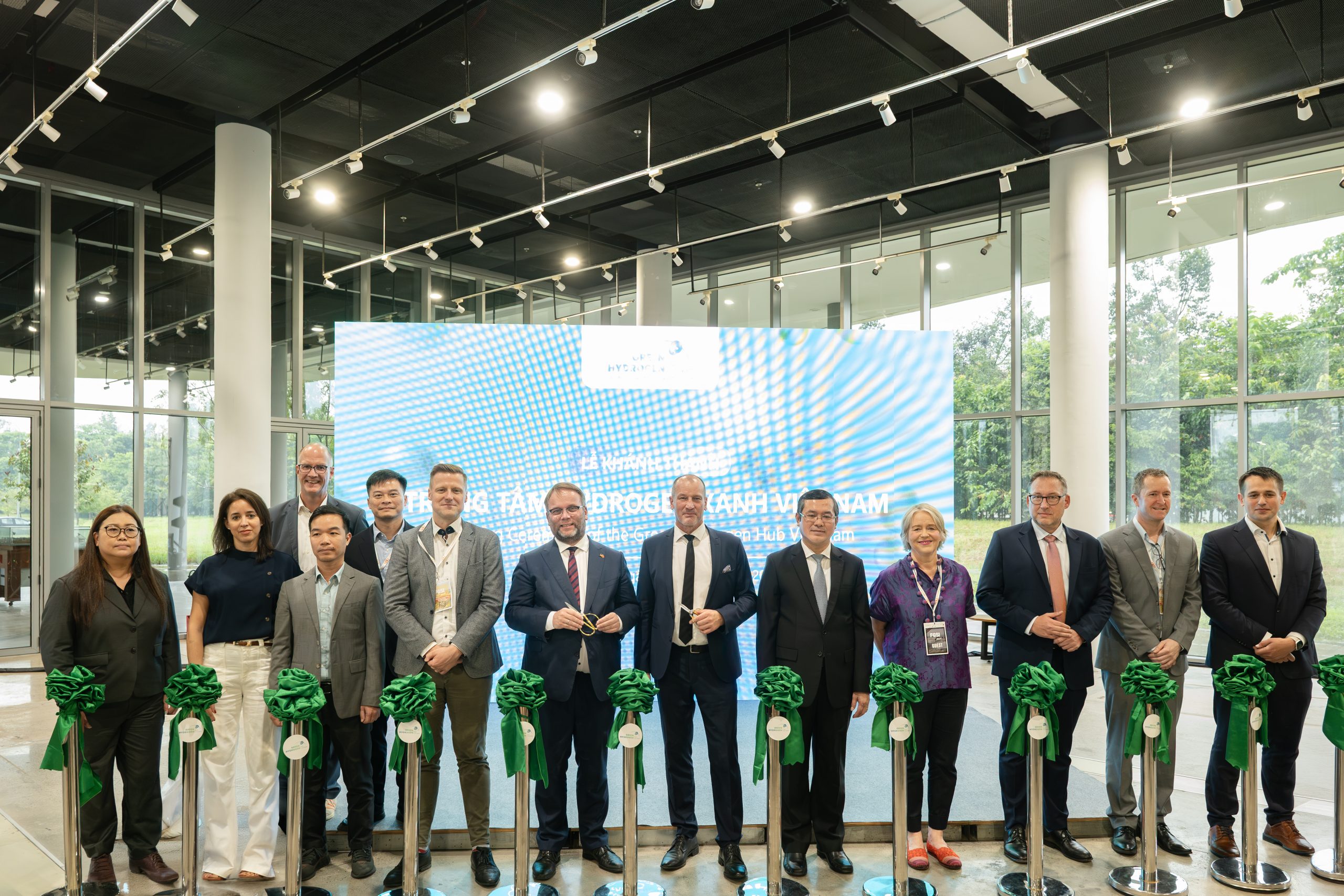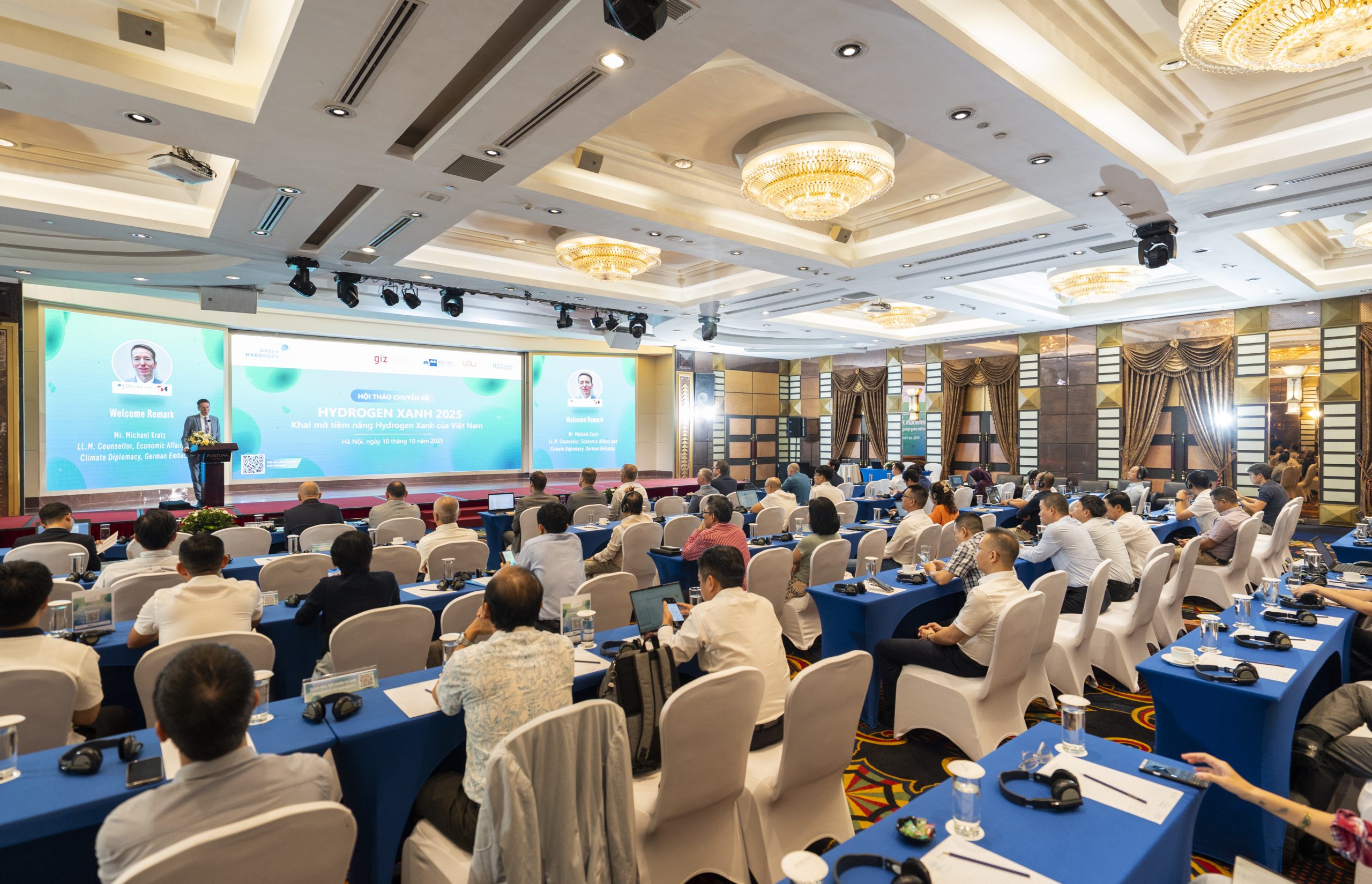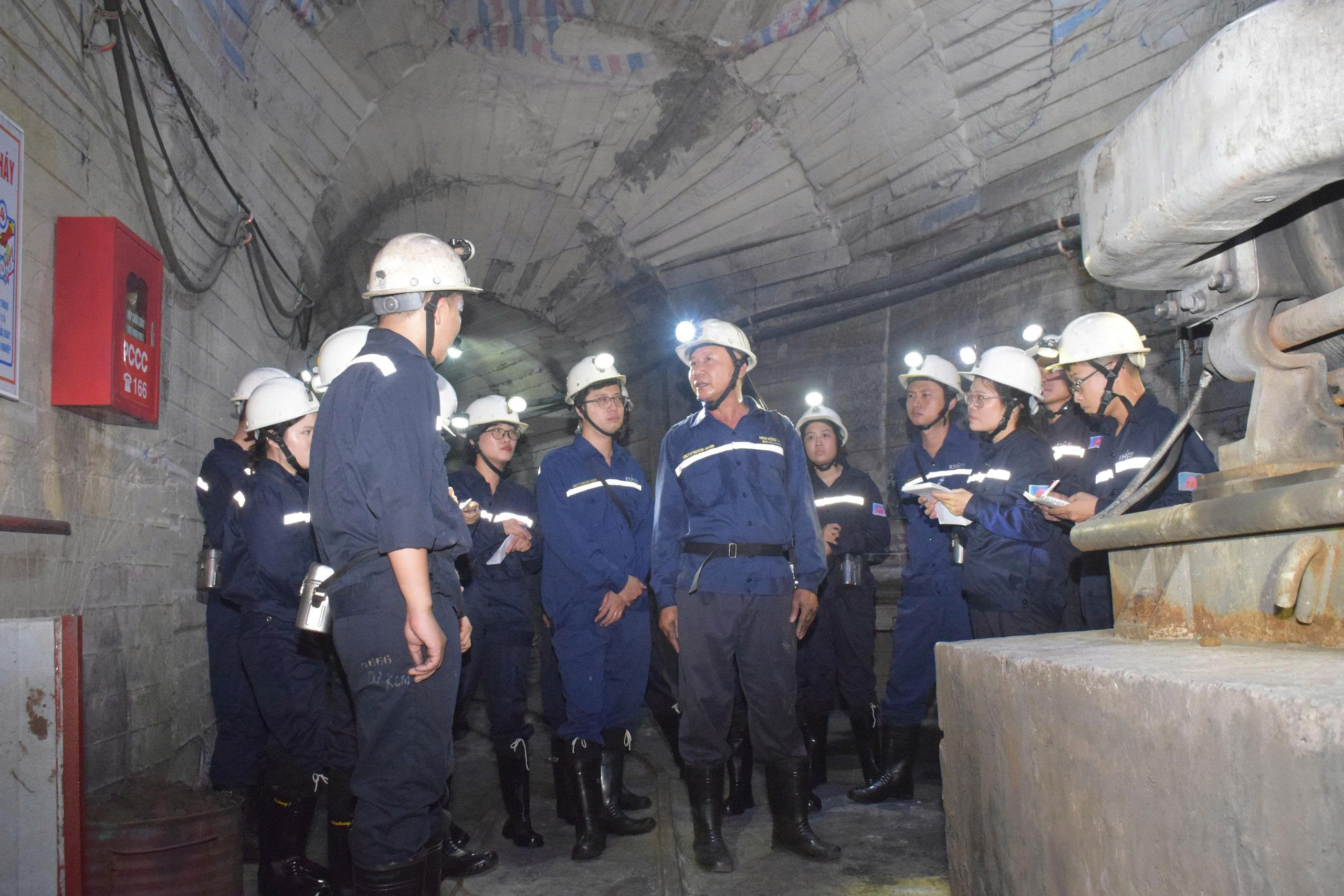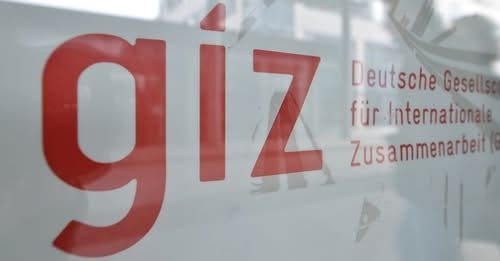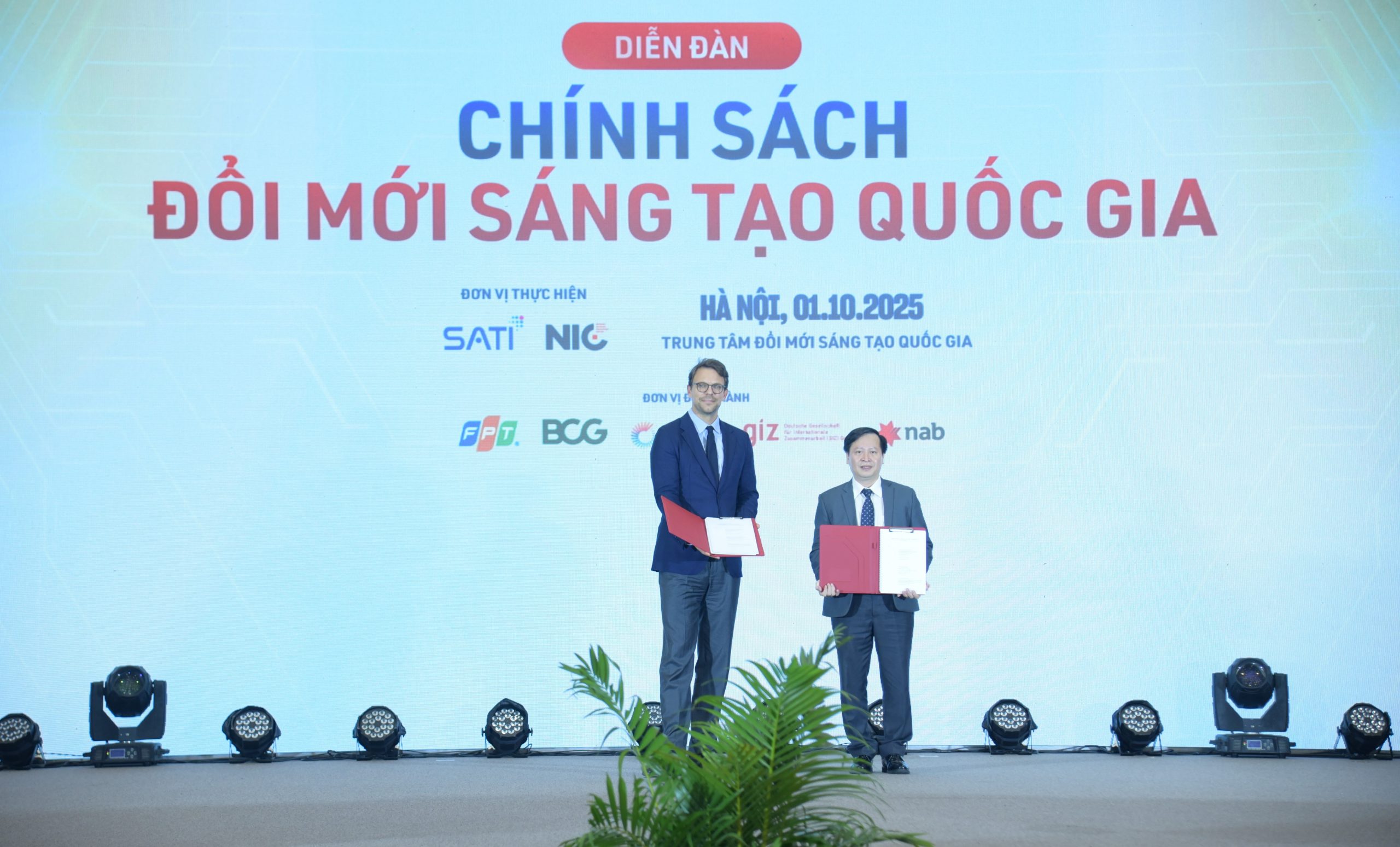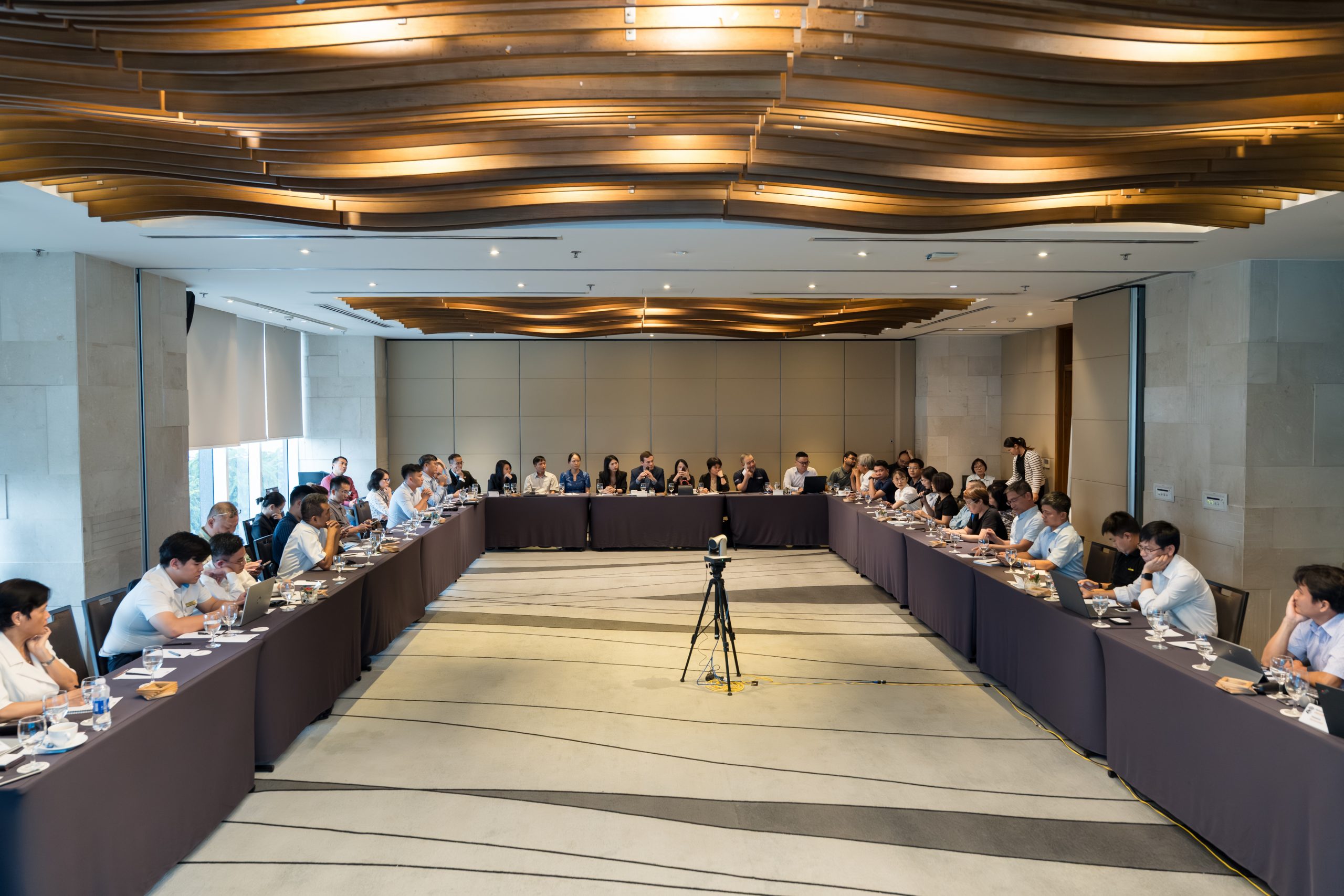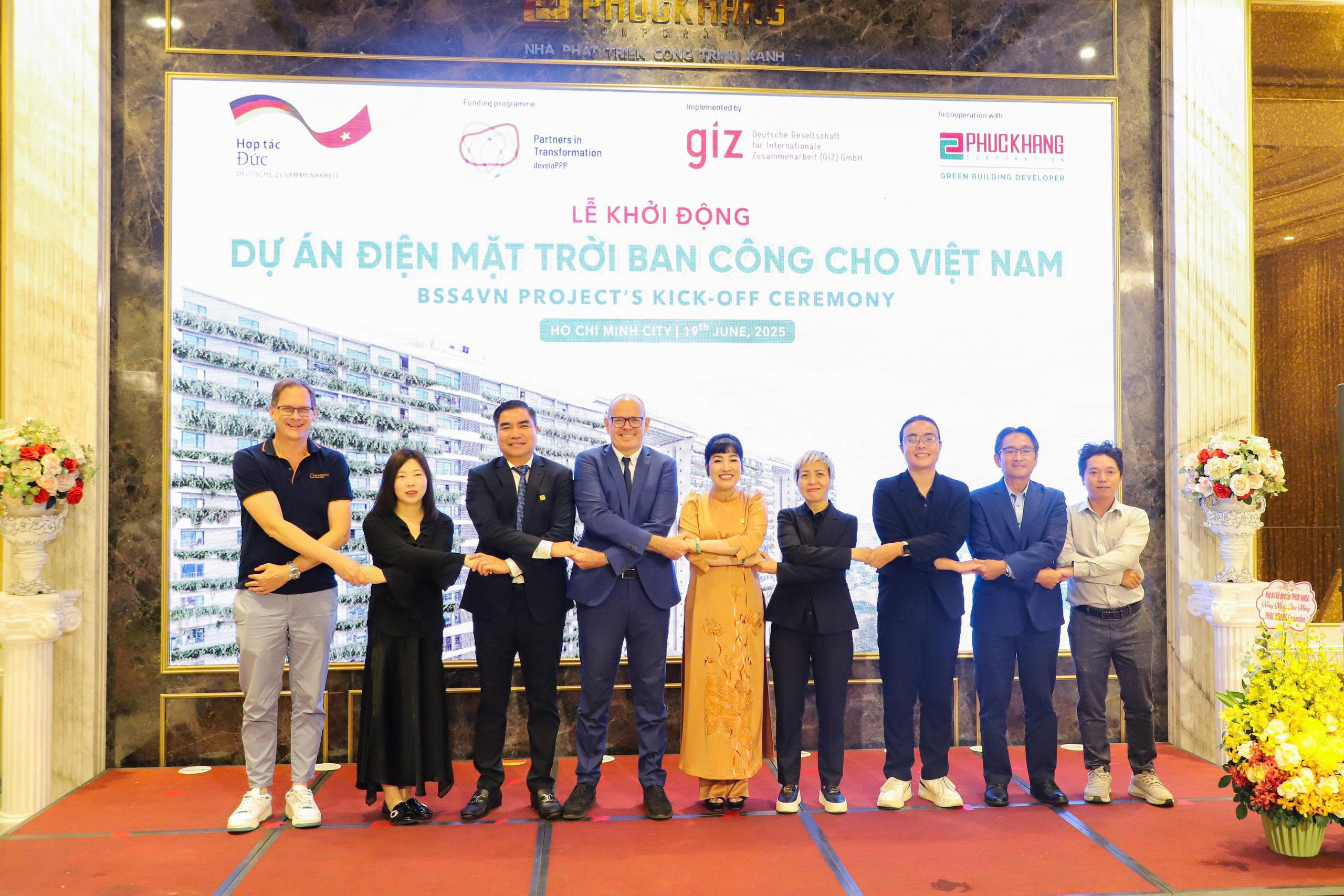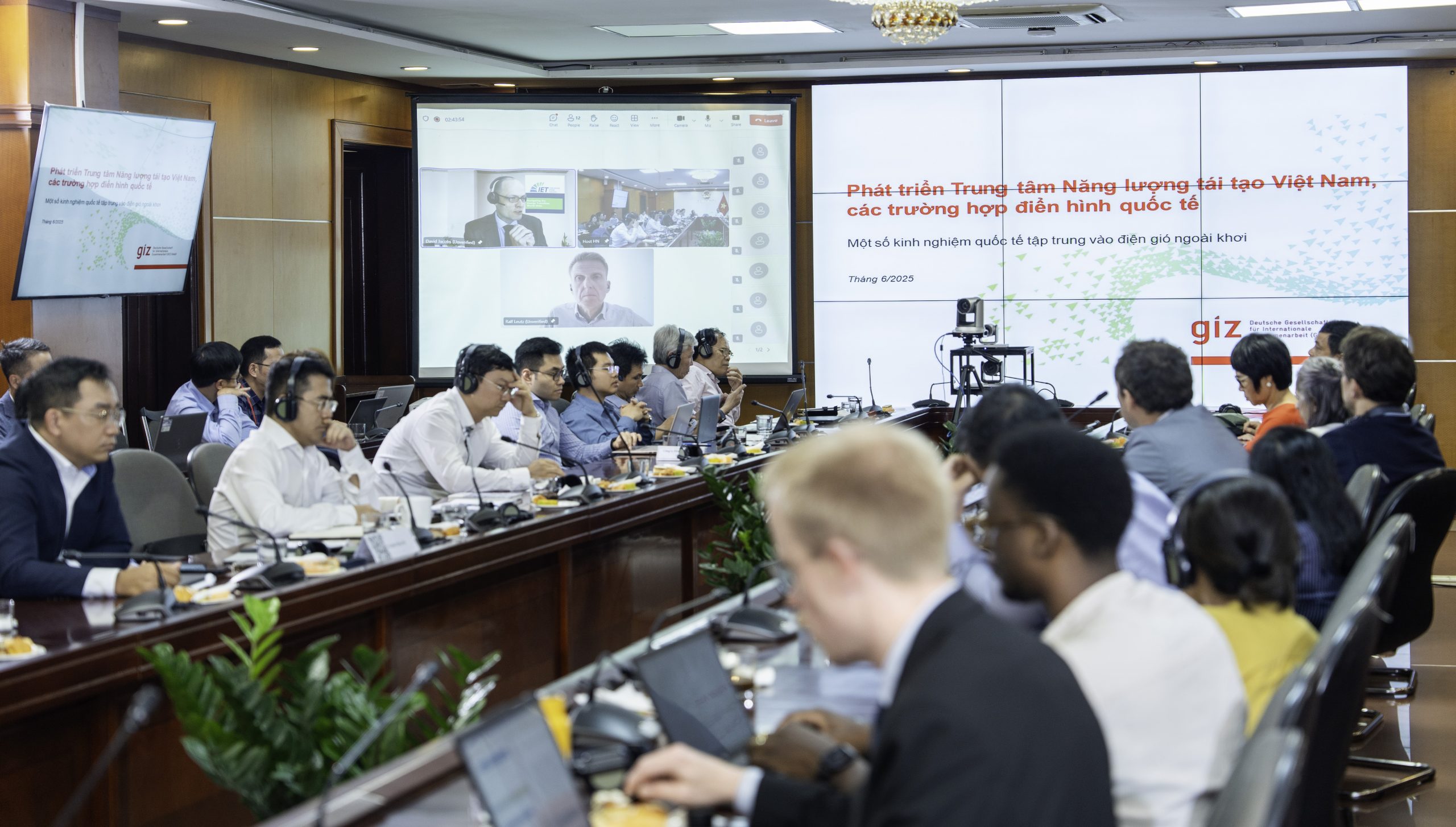Bangkok, 23 July 2025 – Government representatives, energy regulators and utilities from across Southeast Asia gathered alongside international experts in Bangkok for the CASE Regional Energy Transition Dialogue (RETD) 2025, an annual platform for high-level exchange on energy security, cooperation, and transition. Held under the theme “Geopolitical Currents & Energy Shifts: Southeast Asia’s Strategic Future,” the event brought together policymakers and experts to explore how the region can navigate global uncertainties while accelerating the shift toward sustainable energy systems.
Hosted by the project Clean, Affordable and Secure Energy for Southeast Asia (CASE), funded by the German government (Federal Ministry for Economic Affairs and Energy: BMWK) and implemented by GIZ, the two-day dialogue provided a platform for government representatives, energy experts, and stakeholders from Indonesia, the Philippines, Thailand, and Viet Nam to exchange policy experiences, discuss shared challenges, and explore strategic opportunities to strengthen energy security and cooperation. With a focus on geopolitical and economic trends, domestic energy resilience, and regional integration, RETD aims to support these countries in shaping resilient, low-carbon energy systems aligned with long-term development and climate goals through expert input, dialogue, and cross-country learning.
Opening the event, Watcharin Boonyarit, Deputy Director General of Thailand’s Energy Policy and Planning Office (EPPO), stated:

“Southeast Asia remains vulnerable to geopolitical disruptions and fossil fuel dependency. But in this challenge lies a unique opportunity. By aligning our energy transition with industrial development, we can become a competitive hub for clean technology while ensuring energy security, affordability and sustainability for all.”
Likki-Lee Pitzen, First Secretary for Political and Cultural Affairs at the German Embassy in Thailand, emphasised international partnership and shared responsibility:
“The energy transition is a global challenge that requires global cooperation. Our engagement in Southeast Asia reflects a commitment to mutual learning and joint action, because the solutions developed here can inspire and inform efforts far beyond the region.”

Sascha Oppowa, Project Director of CASE, added:

“The concept of energy security has evolved—and today, it’s no longer just about energy supply and affordability. It’s about resilience, regional cooperation, and long-term sustainability. The RETD creates space to reflect on how Southeast Asia can respond to global uncertainties while building secure, low-carbon energy systems together.”
The dialogue welcomed high-level representatives from across the CASE countries, including the Ministry of Industry and Trade and the Ministry of Science and Technology (Viet Nam); the Energy Policy and Planning Office (EPPO), Electricity Generating Authority of Thailand (EGAT), and the National Economic and Social Development Council (NESDC) (Thailand); the Department of Energy and Energy Regulatory Commission (Philippines); and from Indonesia, the Ministry of National Development Planning (Bappenas), Ministry of Energy and Mineral Resources, the State Electricity Company (PLN), and the National Energy Council (NEC). Their active engagement reinforced the dialogue’s relevance to ongoing national policy development and regional cooperation efforts.
Throughout the dialogue, guest speakers from CASE consortium partners – including Agora Energiewende, the NewClimate Institute, the Institute for Essential Services Reform (IESR), Energy Research Institute, Chulalongkorn University (ERI) – were joined by regional and international experts from organisations such as the ASEAN Secretariat, the ASEAN Centre for Energy, the International Energy Agency (IEA), the International Labour Organization (ILO), SEforALL, Southeast Asia Energy Transition Partnership (ETP), Centre for Research on Energy and Clean Air (CREA) and the United Nations Economic and Social Commission for Asia and the Pacific (UN ESCAP). Together, they shared insights on domestic energy diversification, power system flexibility, clean energy supply chains, and workforce development to support a just energy transition across Southeast Asia.
Active participants from across the region engaged in lively discussions and contributed to thematic breakout groups, where they explored practical solutions and shared country-specific insights on key issues such as renewable integration, supply chain resilience and workforce readiness. These interactive sessions fostered cross-country learning and encouraged collaboration on strategies tailored to Southeast Asia’s unique energy challenges.
Bringing together key actors from the region, RETD 2025 reaffirmed a shared commitment to advancing a secure and sustainable energy future for Southeast Asia.
The event took place under Chatham House Rules, meaning participants are allowed to use the information from the conversations, without attributing content to specific persons.
Contact:
CASE Communication Specialist – thitikorn.srichomphoo@giz.de



